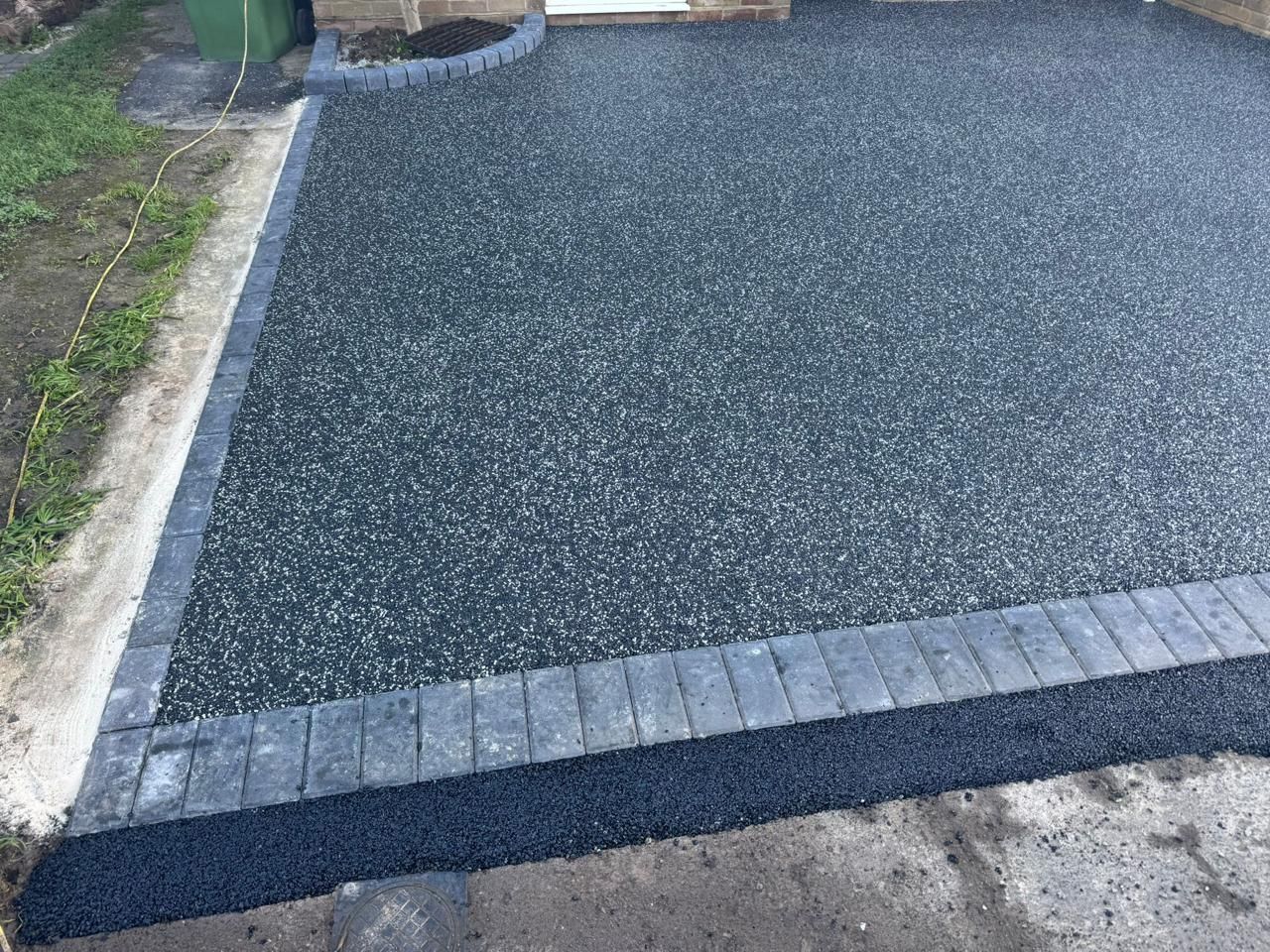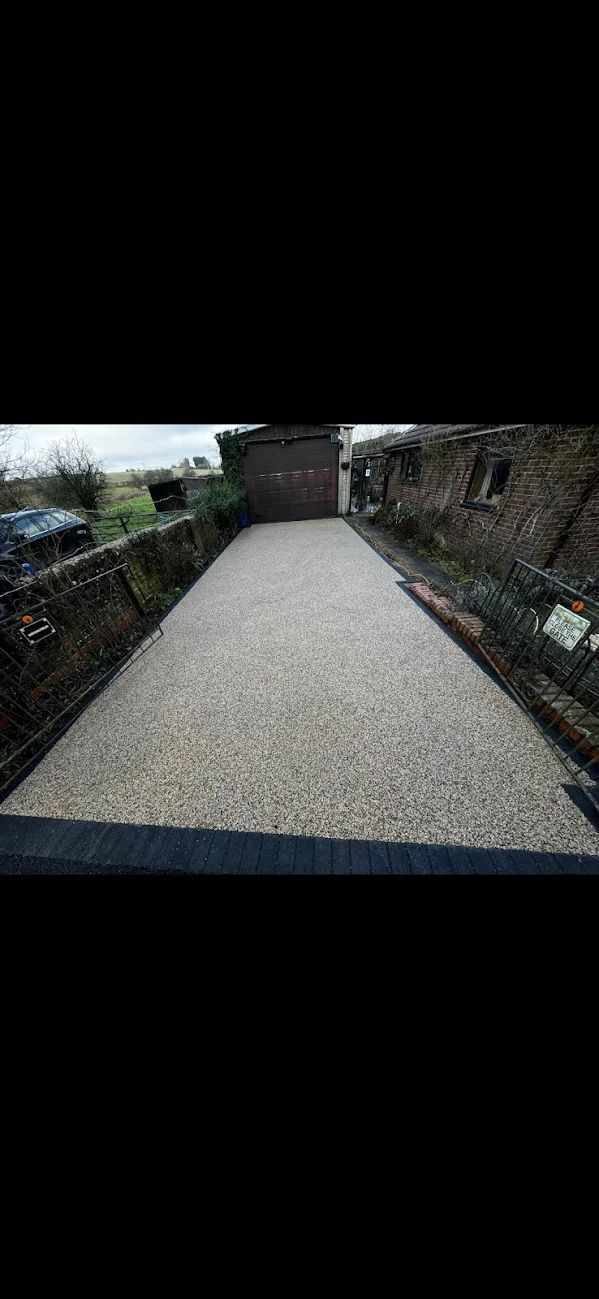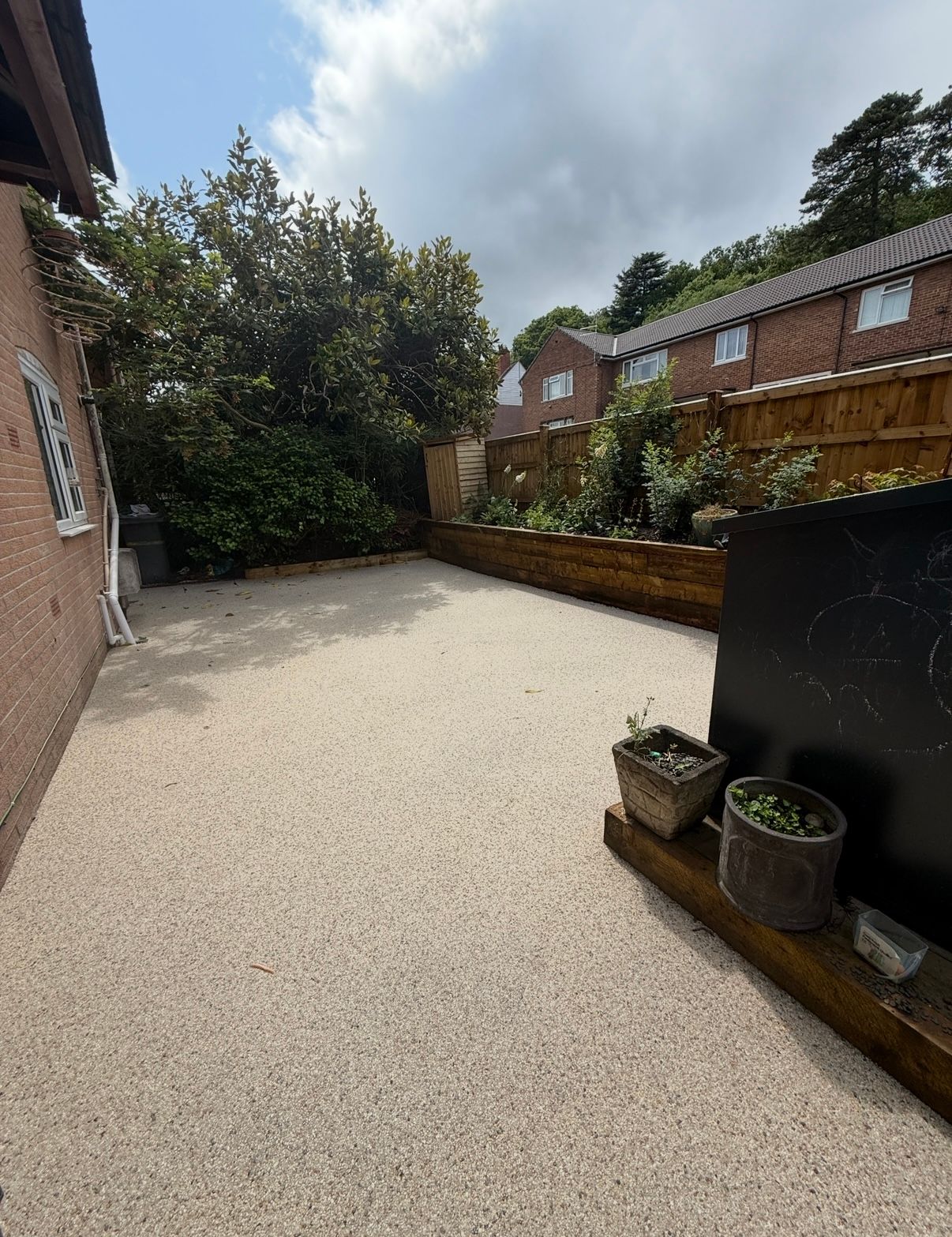Maintenance Matters: Resin vs. Traditional Driveways
The actual cost of any driveway extends far beyond installation. Traditional materials often require significant ongoing attention, while resin driveway maintenance involves minimal time and expense. This difference becomes increasingly apparent throughout the ownership timeline.
Keeping
clean resin driveways requires little more than occasional sweeping and periodic rinsing, unlike concrete, which often demands scrubbing to remove stubborn stains or moss. The simple
resin driveway care routine contrasts sharply with the labour-intensive maintenance needed for block paving, which typically involves regular weeding and sand replenishment.
Longevity Comparison
A well-installed resin surface offers an impressive resin driveway lifespan – typically 15-25 years with proper care. Conventional materials often require primary intervention much sooner. Asphalt typically requires resealing every 3-5 years, whereas concrete usually develops cracks that need attention within a decade.
The need for
driveway pressure washing differs significantly between materials. Traditional surfaces often require aggressive cleaning methods that can accelerate deterioration. Conversely, resin’s non-porous nature resists staining, with its
resin driveway durability holding up remarkably well against daily use and environmental factors.
Repair Considerations
When damages occur, traditional materials often present challenges. Concrete patches rarely match the original surface, while asphalt repairs frequently leave visible seams. In contrast, minor
resin driveway repairs blend seamlessly.
Resin driveway sealing may occasionally be recommended, but it is far less frequent than the maintenance required by conventional alternatives.
For many homeowners,
the appeal of a driveway resurfacing with resin over existing concrete
provides a cost-effective
driveway makeover without complete reconstruction. This adaptability, combined with minimal maintenance requirements, makes resin the superior choice when analysing lifetime costs against traditional driveway materials.
View our YouTube video on the subject below:





